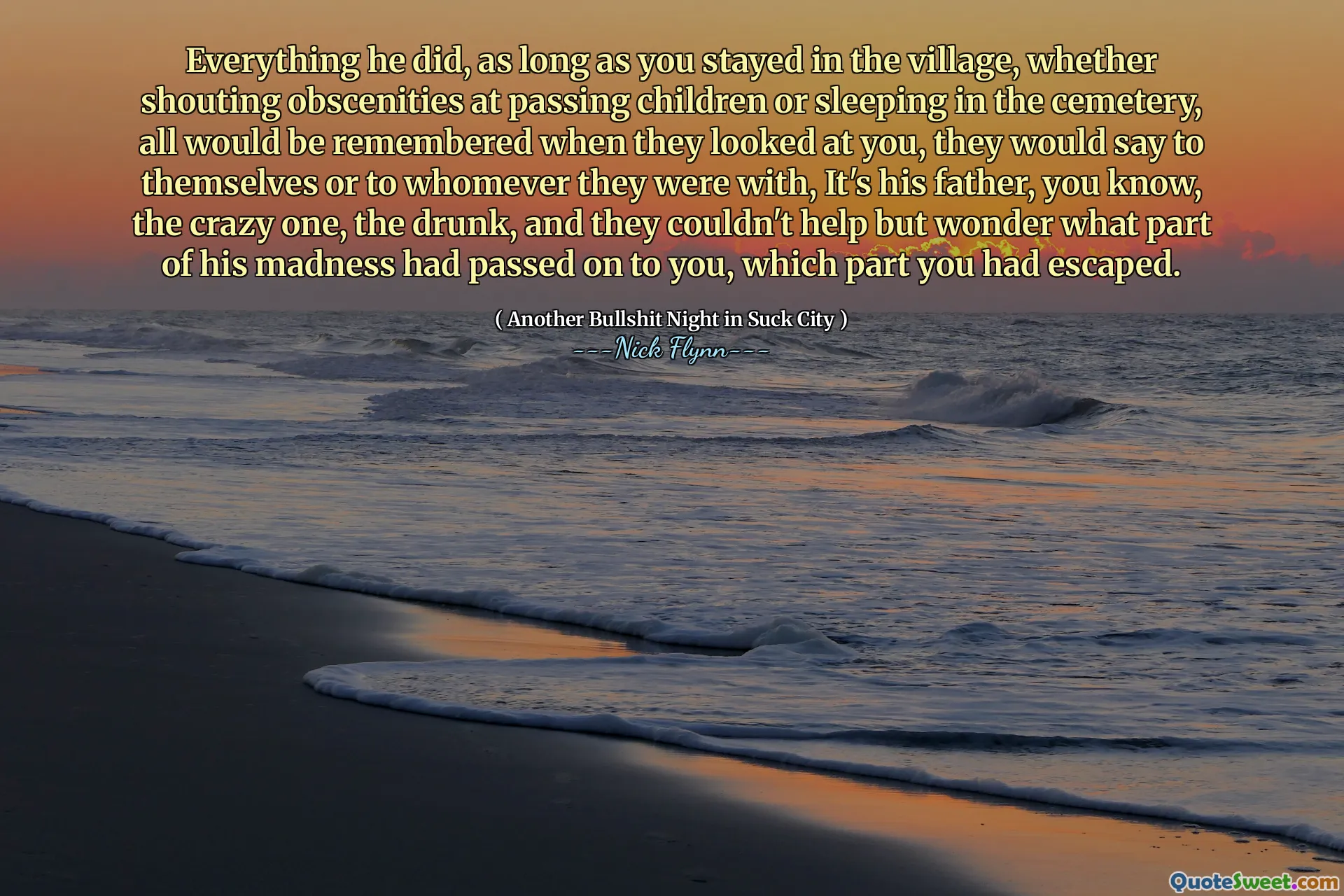
Everything he did, as long as you stayed in the village, whether shouting obscenities at passing children or sleeping in the cemetery, all would be remembered when they looked at you, they would say to themselves or to whomever they were with, It's his father, you know, the crazy one, the drunk, and they couldn't help but wonder what part of his madness had passed on to you, which part you had escaped.
This quote captures the burden of inherited identity and the weight of community perception. It poignantly reflects on how the actions and reputation of one generation cast shadows upon the next, shaping how individuals are viewed regardless of their own choices. The village, representing a close-knit social milieu, serves as the silent yet ever-watchful witness to both overt acts and subtle inheritances. The father is painted through a lens of dysfunction—"the crazy one, the drunk"—and this label does not just stay with him but permeates his offspring's identity.
What stands out is the internal conflict suggested by "what part of his madness had passed on to you, which part you had escaped." This suggests a complex interplay of nature, nurture, and personal will. It alludes to the anxiety and ambiguity surrounding legacy and the desire to distinguish oneself from the shadows of familial flaws while recognizing the indelible marks they leave. The passage mourns and humanizes the struggle of children grappling with their parents' imperfections, exactly in the way Nick Flynn explores themes of addiction, mental health, and familial ruin in "Another Bullshit Night in Suck City."
In a broader sense, the quote challenges us to consider how society labels us based on our associations and histories. It brings forth empathy toward those trapped by their inherited circumstances and encourages a deeper understanding of identity as something simultaneously bestowed and forged with effort. The raw, unfiltered depiction of the father’s actions underscores how stigma and reputation need not be easily shed, raising important questions about judgment, resilience, and hope for personal transformation.







